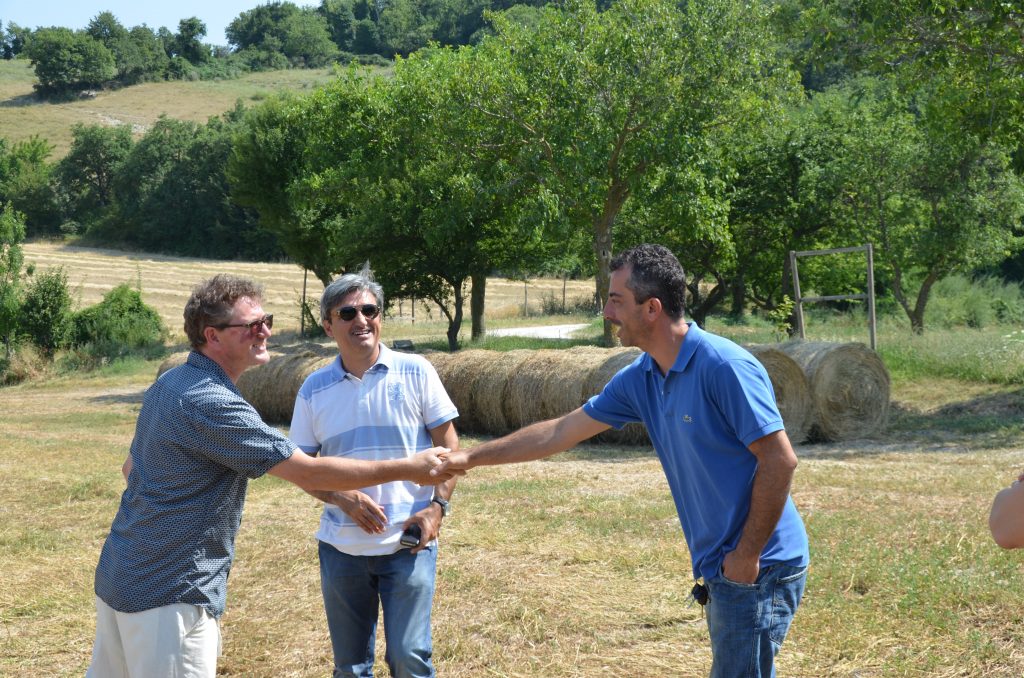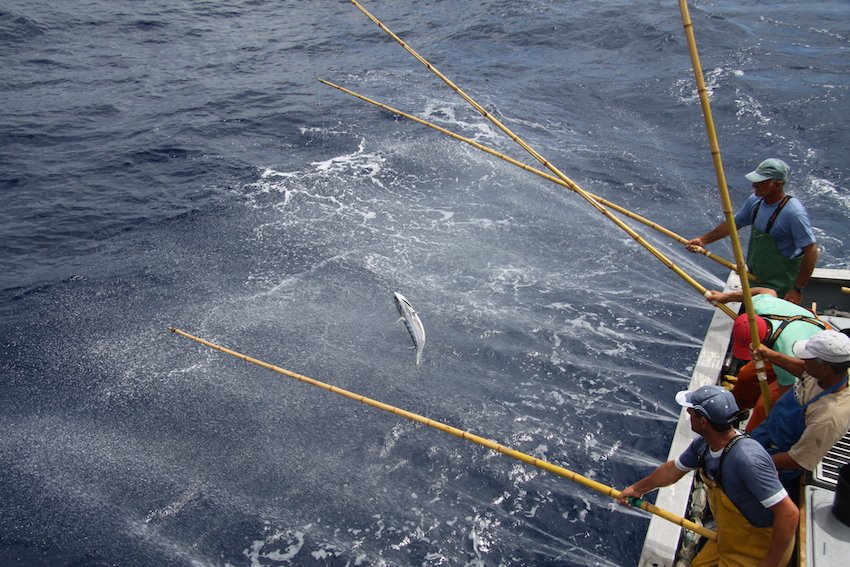Organic bacon made without nitrates. Here’s what you need to know.
Shop local became a big thing during the pandemic, with nearly two-thirds of consumers in the UK rediscovering the high street.
At one stage, this led to a 63% rise in spending at specialist food and drink stores such as butchers, bakeries and greengrocers, reported one of the UK’s largest debit and credit card operators.
This trend continued even when the supermarkets managed to restock their shelves. It looks set to continue for a while yet.
There’s undoubtedly a feel-good factor to shopping locally. It’s gratifying to walk into a local shop, have a chat with the owner, purchase some artisanal food and know our money is going to the person serving us, rather than some faceless corporation.
Shopping locally makes us feel more connected to our community. We feel proud to know the secrets of what our little enclave has to offer and to support local endeavours. Suddenly the city is not so anonymous and we find ourselves waving ‘hello’ as we walk down the street.
Joyful and delicious though it can be, local isn’t always synonymous with ‘good’. This is an important distinction to make if your aim is to eat more ethically.
“In the UK, we rear 73% of animals in factory farms.”
Cornwall has some incredible farmers and food. It also has some of the highest concentration of factory farms in the country. So, as far as Cornish produce is concerned, local can mean two very different things.
And that’s the story, the UK over…
Local and environmental impact: the myth vs the reality
When it comes to carbon footprint, many people believe local is synonymous with low food miles and therefore less carbon. But, this is a misconception that’s pretty far from the reality.
Food production is responsible for one-quarter of the world’s greenhouse gas emissions, according to Our World in Data. But, they argue, eating local “is one of the most misguided pieces of advice” when it comes to reducing our carbon footprint.
This is because factors such as transport distance, retail, packaging and even farming methods only account for a small amount of the food’s overall carbon impact.
The type of food we eat is the biggest factor when it comes to carbon footprint.

Looking purely at carbon footprint from commercial farms: beef, lamb, cheese, chocolate and coffee have some of the highest carbon footprints.
While nuts, citrus fruit, apples, root vegetables and bananas have some of the lowest.
And the difference is significant: CO2 emissions from most plant-based products are as much as 10-50 times lower than animal based products.
So, when it comes to carbon footprint and food, it’s always about what you eat rather than where it is from.
Local plus biodiversity
Naturally, measuring carbon only tells one part of the story.
As David Attenborough’s latest Netflix documentary Breaking Boundaries: The Science Of Our Planet reveals, one million species of plants and animals out of an estimated total of eight million are threatened with extinction. As such, biodiversity is one of four planetary boundaries humans have crossed, directly threatening the stability of our planet.
“The UK is ranked 189th out of 218 countries for the mass extinction of species”
While farming methods may not impact carbon emissions, they have a huge impact on the environment.
Organic farms, for example, are home to 50% more organisms than non-organic farms.
This is incredibly important because, since 1970, 41% of UK species studied have declined, according to The State of Nature report. Alarmingly, the UK is ranked 189th out of 218 countries for the mass extinction of species.
The report identifies agriculture as a main cause. Another report more specifically cites intensive farming – particularly the heavy use of pesticides – as a key driver.
As such, eating organic or food farmed in a genuinely sustainable way is much more important than eating local food.
So, when you’re in a local shop or buying from a local producer, it’s important to ask about how their goods are made. Is that cake in the window made by a local baker using organic or ingredients from good local producers? Or are they buying mass-produced and selling as artisanal?
Does your favourite restaurant list the meat as being from ‘local farms’? Well, in the UK we rear 73% of animals in factory farms. This means, local is more likely to involve a method of farming you don’t agree with, than you do.
We need more information than just ‘local’, please.

Local plus socially responsible
We not only need to know how our food is produced, but also who is producing it.
“Many people working in food and farming are in low-paid and precarious jobs, leaving them unable to afford adequate housing and nutritious food, entrenching social injustices. There is also a significant racial dimension because a high proportion of food industry workers are from Black from and other ethnic minority communities,” reports the Food Ethics Council.
‘Social gastronomy’ is a global movement that uses the power of food as a tool for social change.
This is where local can really come into its own.
Over the past 25 years Growing Communities have worked to harness the collective buying power and skills of their community to reshape food and farming systems. They are strict about how the food it sells is sourced and sold: using only organic, climate-friendly food; paying fair prices to local sustainable farmers; keeping supply chains short; and encouraging people to eat less meat and processed food and more fresh fruit and veg. They are the antithesis to supermarkets and the best of local.
Similarly, Better Food Traders links people across the country with their local community schemes. Importantly, it accredits community-led enterprises that sell good, healthy food, and that care for the environment and everyone along the supply chain.
These are just a couple of many examples. If you Google your area, we’re sure lots of wonderful options will surface (after the paid ads…).

Local and the economy
From reports of supermarkets squeezing farmers on prices to worker issues in Amazon’s warehouses, the concentration of power when it comes to buying food hasn’t exactly proved itself to be fair or socially responsible.
Various studies have shown that “local” works in terms of keeping money and economic vitality in the community, and it’s a fair assumption.
“But, why can’t we have local worldwide? Why can’t we support the best of well-produced, community and planet positive food everywhere – assuming of course the exchange itself is fair?” asks Charles Redfern, founder of Organico Realfoods.
This allows regions to specialise and also to benefit from trading with one another.
“My favourite metaphor for a good society is one in which everyone eats well.”
Carolyn Steel, Food Ethics Council
If you can’t get to a good farmers market near you, Open Food Network, allows consumers to buy directly from farms across the country. Importantly, this is at a fair price for both the farmer and the buyer.
Organico Realfoods is a British-owned company that delivers cupboard staples straight to your door. It’s a living wage employer in the UK but its products come largely from Europe.
They source their organic pasta, tomatoes, olives, vegetables, sparkling juice, rice and risottos from passionate farmers, local co-operatives and family businesses that support the local economies and are pioneers of sustainably-grown foods.
The Organico best practise sourcing philosophy is to find farmers who also process and manufacture the raw materials. It’s win-win – more money for the farmers and growers to reward their stewardship, sustainable values and expertise plus authenticity and taste quality in the products sold by Organico.
Its Fish4Ever tinned tuna is from a fishery in the Azores that has been described as the greenest fishery in the world. It only operates pole and line tuna vessels that are locally and independently owned, and closely monitored and managed. The factory Fish4Ever supports is the largest employer of local workers on their island. Fish4Ever also sells high Omega 3 Scottish brislings or sprats from two local boats on the West Coast of Scotland. It sources its other canned fish from a range of low impact small scale fisheries. Every single can of fish is traceable to the boats that fished it.
“There’s another important part to the economy and socially responsible tags; I call this the ‘Shumacher option’,” explains Redfern.
“Not the racing driver, but the author of the seminal book Small is Beautiful: a study of economics as if people mattered. To me, this means an economy where ownership is diffuse, democratic and participatory. There are lots of companies and lots of local bosses working in companies that are engaged in and/or co-dependent to the local economy – wherever that may be.”
So, buy local. But, buy good first.
Written in collaboration with Organico and Fish4Ever.
Main image: Better Food, Bristol. Their slogan is: “Organic. Local. Ethical.”

